November 16, 2021
A commission to study the health and safety impact of laws related to sex work met for its first official hearing at the Rhode Island Statehouse. Officially called the “Commission to Study Ensuring Racial Equity and Optimizing Health and Safety Laws Affecting Marginalized Individuals,” the meeting was enabled by the passage of H5250 last session. The bill, sponsored by State Representative Anastasia Williams, created the commission to “make a comprehensive study and provide recommendations on the health and safety impact of revising laws related to commercial sexual activity, identifying the methods of human trafficking and exploitation to develop strategies to reduce these activities, and ensuring accountability in the treatment of marginalized and targeted communities by [the] police.”
DSW’s J. Leigh Oshiro-Brantly is serving on the commission along with Henri Bynx, representing the Erotic Laborers Alliance of New England, and Melissa Broudo, Legal Director of DSW is one of the organizers. Representative Anastasia Williams is the Chair, Representative Edith Ajello is the Vice-Chair and other members include Bella Robinson, Executive Director of COYOTE RI; Robyn Linde, Legislative Coordinator for Amnesty International; Justice Gaines, an organizer for the Providence Youth Student Movement (PrSYM); Jocelyn Foye, Executive Director of The Womxn Project; Dr. Philip Chan, representing the Department of Health; Attorney Michael DiLauro, from the Public Defender’s Office; Attorney Kathryn Sabatini, from the Attorney General’s Office; Elena Shih from the Brown University Center for Slavery and Justice; and, Sidney Wordell from the Rhode Island Police Chief’s Association.
At this initial meeting, Representative Williams introduced the members and responded to questions, such as one from Dr. Chan around the availability of data around human Trafficking. “There is data,” replied Williams, “but hopefully no one is too squeamish or self-righteous to listen to the actual conversation. We just need to feel comfortable being uncomfortable because here we come.” Gaines and Oshiro-Brantly also spoke about the importance of using inclusive and clear language when talking about sex work issues. “For public testimony, it’s very important that we get comfortable with talking about the issues in our society and not hiding behind language that seems more appropriate or more innocent. And that’s especially true when we’re dealing with populations — women, trans folks, queer folks, people of color — who often don’t get to see themselves in the language that’s used in many of these spaces,” said Gaines. “I want to make sure that as we’re talking about people in the sex industry we’re also talking about … clients of sex workers and … partners of sex workers — that are also impacted by criminality,” added Oshiro-Brantly.
DSW is encouraged by this initiative to craft data-driven policy around sex work and human trafficking. The Commission will meet regularly and begin to examine existing research on these topics, and how these laws impact the health and safety of our communities, particularly those who are most marginalized.
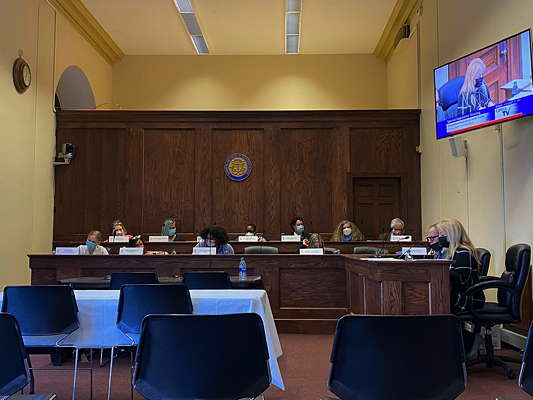
Commissioners are pictured in the Rhode Island Statehouse. (DSW, 2021)
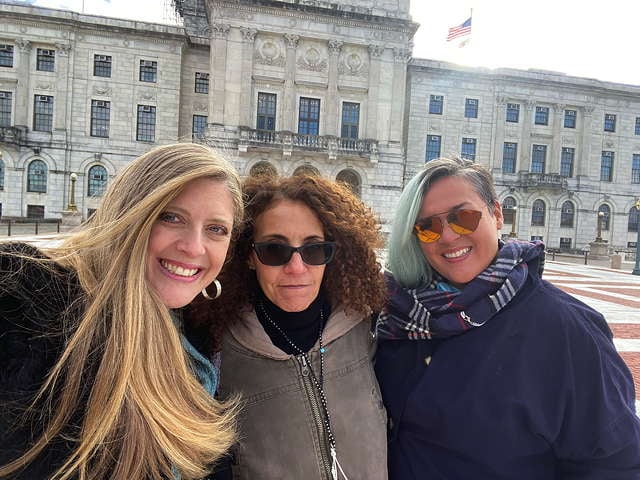
Melissa Broudo, Allison Kollins, and J. Leigh Oshiro-Brantly pose in the capital shortly before the meeting begins. (DSW, 2021)
DSW Newsletter #30 (November 2021)
Gov. Hochul Signs START Act Into Law
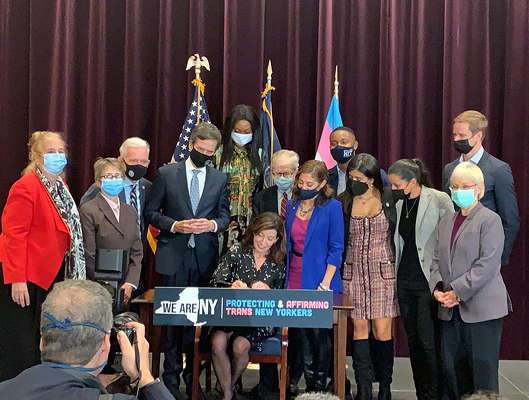
Commission Studying Sex Work Law and Policy Convenes in Rhode Island

Decriminalization Gaining Momentum in Oregon
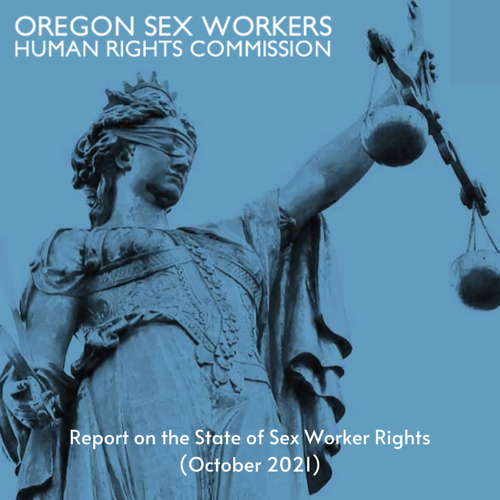
Conferences
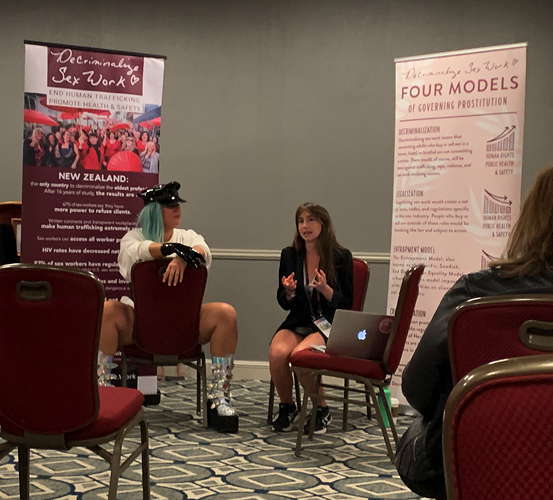
Transgender Day of Remembrance
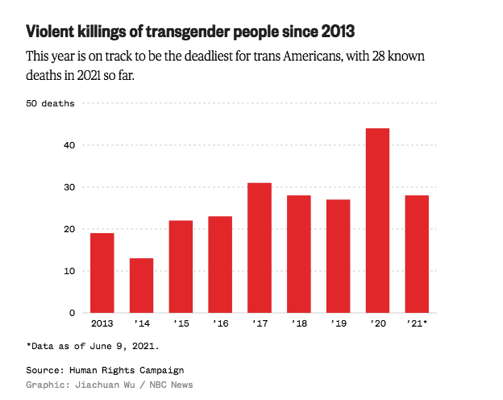
Hero of the Month: Gwendolyn Ann Smith
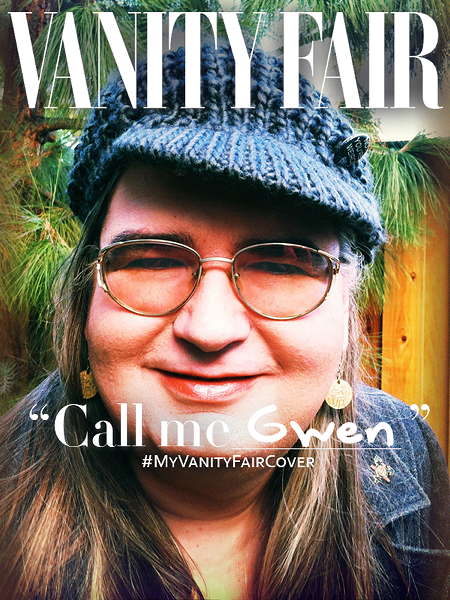
Save the Dates
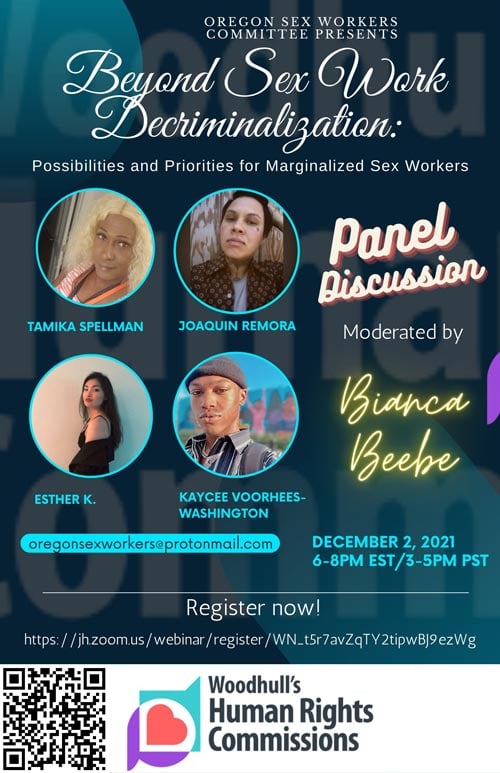

Comments are closed.